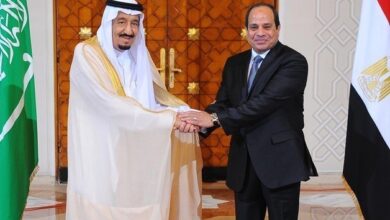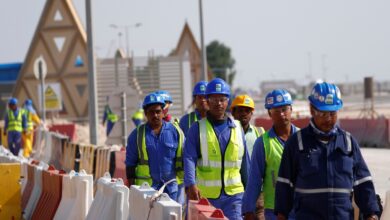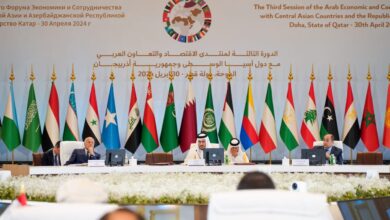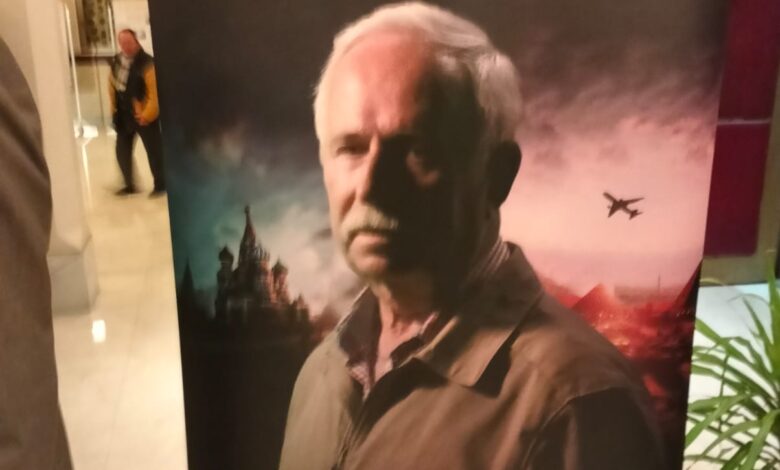
Dr. Ahmed Mostafa writes
This celebration was supposed to be held last October according to the invitation that I received from the secretariat of the Russian Ambassador in Cairo (Mr. Borisenko), represented by Mr. Vladimir, but the celebration was postponed due to the bad situation in Gaza, and out of concern for the feelings of Arabs and Muslims during this period. Critical.
Then, it was decided to hold this celebration (80 years of Egyptian-Russian diplomatic relations) yesterday, Tuesday, in the Small Theater of the Cairo Opera House. Thank God that the weather was favorable and tended towards spring after a cold spell that lasted for more than two weeks in Lower Egypt.
The remarkable thing is that one of the parties to this beautiful and elegant celebration for which we thank our Russian brothers and loved ones is the “Russia Today Arabic” channel, by Egypt’s entry into BRICS Plus membership. In addition to Russia and the increased interest in Egypt in general as one of the most important countries favored by Russia at the level of the Arab world and Africa – Egypt is, to date, the largest trading partner for the Russian side, with a value of more than 6 billion dollars.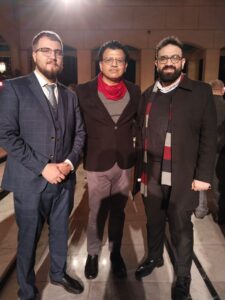
This value will increase with the entry into force of the Russian industrial investment zone, perhaps after the end of the war on Gaza, which we want to end quickly with a just solution for the Palestinians. Everything that has happened since the 1970s, and due to the neglect of the Palestinian issue, has been the main cause of all the tensions that have occurred in the region and its countries, including Egypt, until now. Here there is also an Egyptian-Russian understanding in this regard. Accordingly, Russia Today Arab has activated the tools of soft power, and we know from our follow-up of Russia Today that it produces high-level documentaries.
She produced a documentary film entitled (Going and Returning), and it is clear from the film’s title that it is the journey of a Russian figure who is fluent in Arabic. He served in the Russian army and worked as an assistant officer, expert, and translator with the Egyptian army. This figure remembers, through a state of nostalgia, his presence in Egypt, specifically in Cairo, fifty years ago. Then he rediscovers Cairo again and compares its situation in the past and the present.
At the same time, the film’s hero was able to visit the main landmarks in Cairo, which he had been deprived of due to his work, especially the Pyramids, Fatimid Cairo, the Mosque of Sayyidna al-Hussein, and downtown Cairo.
The film also casts a shadow on Egyptian-Russian strategic relations in this difficult historical period following the defeat of 1967, and how the Russian army contributed to re-arming the Egyptian army and supplying it with MiG-23 aircraft (80 aircraft) specifically. As well as air defense weapons, which enabled the crossing to the October victory. The film also refers to the martyrs of the Russian army in the Sinai liberation war with the Egyptian army. This is what we said repeatedly, that we won the October 1973 war against the Zionist entity thanks to Russian military support and the superiority of Russian weapons.
This was confirmed by his friend, the Egyptian fighter pilot, retired Major General Mr. Ahmed Kamal Al-Mansouri, and perhaps Russia today, through this beautiful gesture, honored this pilot, the Egyptian army, and this generation, the October generation, the generation of victory over Israel, by hosting him – and thank God I was pleased to meet him after the film was shown.
Then the hero of the film moved to Alexandria and the Russian House specifically and followed the interest of some Egyptian students in the Russian language and the presence of another Russian person learning Arabic.
But despite the good material of this film, I was hoping that there would be a link and insights from Russians working and studying in Egypt and vice versa from Egyptians working and studying in Russia from the new generation – because what I noticed during my scholarship at the Higher School of Economics in Moscow is that what the new Russian generation knows about Egypt is only tourist areas such as Hurghada, Sharm El Sheikh, and the Pyramids.
Not much is known about the lifestyle of people in Egypt, the level of education, culture, and economic and social aspects. Especially those under the age of 30, except diplomats and those interested and specialized in the affairs of the Arab region and the Middle East.
On the contrary, many Egyptians do not know Russian culture, and how do Russians think? Russia Today may be trying to present this in its bulletins and websites, but it was necessary, for example, to divide this work into two halves (one half of this beautiful character represents the older generation – and the other half talks about the current situation between Russian and Egyptian youth).
A personality like that of Mr. Aleksei Tevanyan, who lived in Egypt for about 14 years and served with the then Ambassador Bogdanov in Cairo (the current envoy of the Russian President to the Middle East) and then became director of the Russian House, and currently the Russian commercial advisor to Egypt, was also a personality that could express the middle generation and the youth. As well as Artyom Kapchuk, a well-known TV moderator.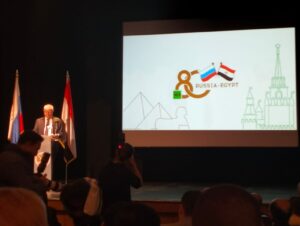
Perhaps exposure to some graduate students at Russian universities from Egypt on the other side, or Egyptian media professionals working in Russia. This would have given a balance of vision between the two generations and provided more understanding. How do Russians see Egypt and vice versa? We can then work on projects that serve the results of this research.
Because in my view, the documentary film is also a visual research work and a case study. I previously had the honor of presenting the famous documentary “Sunnis in Iran – Produced in 2014”. Through it, I interviewed all spectrums of Sunnis inside Iran (clerics and ordinary people) – (men and women) – (old people – young people) because this diversity and contrast gives credibility to the work.
For example, the stars of Egyptian cinema were well-known to the Russians during the golden period, as the representative of the Egyptian Foreign Ministry mentioned, and some Egyptian films won awards at the Tashkent Film Festival and were based on some Russian literary works, especially the film (The Brothers Karamazov). Why is the situation different now, and Egyptian cinema has become unknown in the Russian market despite the presence of many works and vice versa?
I had the pleasure of meeting with the Consul General of Russia in Alexandria, Mr. Karen Vasilian, and talking in detail about some common matters, as I am a citizen of Alexandria and I love and respect Russia, the country that granted me a master’s degree in Russian studies and political economy. I hope shortly that we will cooperate to serve the “Partnership between Alexandria and St. Petersburg” project.
In the end – I would like to thank the staff of the Russian Embassy in Egypt and everyone who cared and invited me to attend this celebration at the Cairo Opera House.


